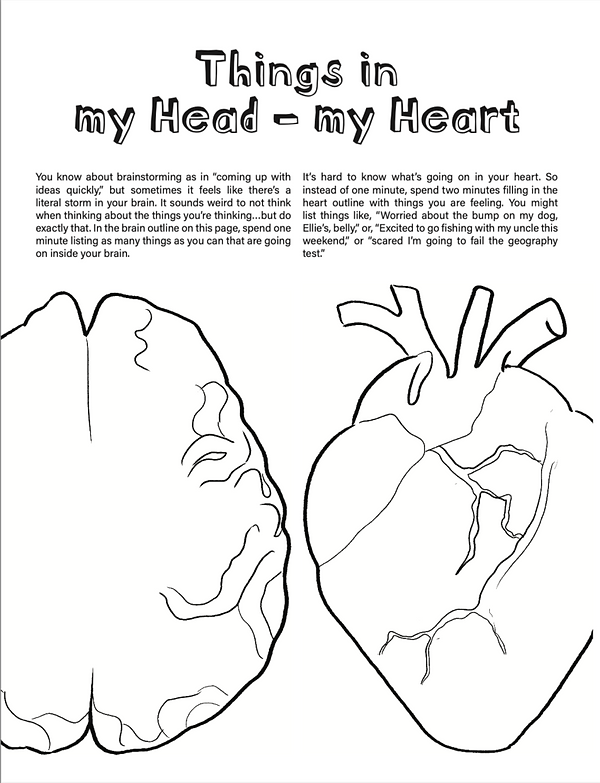

Guía de Shadow’s Edge para la autoconciencia: Un libro de ejercicios de aprendizaje socioemocional (SEL) para adolescentes

El proyecto "Digging Deep" se creó en respuesta a la necesidad de recursos de aprendizaje socioemocional adecuados para preadolescentes y adolescentes. Este grupo de edad se encuentra en pleno proceso de desarrollo de su personalidad, identidad y autocomprensión, y muchos padres, docentes y profesionales de la salud mental han informado que los recursos disponibles actualmente no se adaptan a sus necesidades. El proyecto ofrece un cuaderno interactivo que utiliza diversas técnicas, como el arte, el registro diario y la meditación guiada, para ayudar a los jóvenes a explorarse y comprenderse a sí mismos.
El Proyecto Digging Deep se enorgullece de haber colaborado con un grupo diverso de profesionales en el campo del desarrollo infantil y juvenil, incluyendo consejeros, psicólogos, médicos, trabajadores sociales, investigadores y docentes.
Para este proyecto, trabajamos con la Dra. Kristi Pikiewicz, psicóloga y autora, quien ayudó a diseñar actividades apropiadas para preadolescentes y adolescentes. La Dra. Pikiewicz es maestra de secundaria y se convirtió en psicóloga clínica. Actualmente supervisa el currículo de aprendizaje socioemocional en una escuela privada de primaria y secundaria en Boulder, Colorado, que se centra en la educación para superdotados.
Los ejercicios del cuaderno de trabajo se dividen en tres etapas: Interrupción, Desilusionamiento y Descubrimiento.
Cada etapa representa un paso en el camino hacia el crecimiento y la autocomprensión. Las actividades de la etapa de Interrupción ayudan a los lectores a explorar su pasado e identificar a las personas y los eventos que moldean su autocomprensión.
La etapa de Desilusionamiento ayuda a los lectores a afrontar emociones difíciles y a comprender que los períodos de confusión son parte normal del crecimiento. Y la etapa de Descubrimiento anima a los lectores a verse a sí mismos bajo una luz positiva y a explorar nuevas posibilidades de quiénes pueden llegar a ser.


Si desea participar en futuras investigaciones utilizando el conjunto de herramientas, contáctenos enfeedback@diggingdeep.org
¿Está interesado en contribuir a la investigación sobre el uso de herramientas digitales en su práctica?




